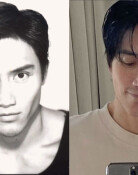[Opinion] Abes Political Tactics
I will not say whether I paid tribute to the shrine. If I say I did, it will become a diplomatic issue, so I wont. said Japanese Prime Minister Shinzo Abe in response to the question of whether he sent a plant to the Yasukuni Shrine during the spring festival that lasted from April 21 to 23. His answer is an example of the Japanese political tactic of ambiguity, known as Aimai in Japanese.
When he was pressed on the question of whether he secretly visited Yasukuni Shrine in April, he avoided a direct answer and just said, I will not say whether I went there or not.
The Aimai tactic involves using double-edged remarks that can be both interpreted as causes, Datemae, or intentions, Honne, to avoid a direct attack from an opponent.
Abes answer is calculated to make the Japanese right wing think, Abe didnt abandon his beliefs, and to avoid strong repercussions from Korea and China. He is the same conservative politician who downplayed the Japanese governments involvement in forced sex slavery for the army during the last world war, saying there is no direct proof. Former Prime Minister Koizumi was at least honest.
Abe, right after taking office, visited China and Korea and acted as if he would pursue diplomacy centered on Asia. But during his visit to the U.S, his duplicity was soon exposed as he began to lobby the U.S. House of Representatives to not adopt a resolution on the sex slavery issue. Then he announced that he would uphold the Kono Statement, which expresses the regret and accountability of Japan for forcing Asian women to serve as sex slaves for the Japanese military. But again he secretly sent a plant pot to the Yasukuni shrine. His emphasis on North Koreas abduction of Japanese citizens while neglecting the sex slavery issue also demonstrates his double standard and hypocrisy.
Koizumi, who visited the Yasukuni shrine every year, was also hereditary politician like Abe but was considered honest. In contrast, Abe is deceitful and considered soft on the surface but hard inside. Given that Japan still has yet to face up to its war crimes 60 years after the war ended, it seems far-fetched for Japan to be treated commensurately with its economic power.
Gwon Sun-taek, Editorial Writer, maypole@donga.com







